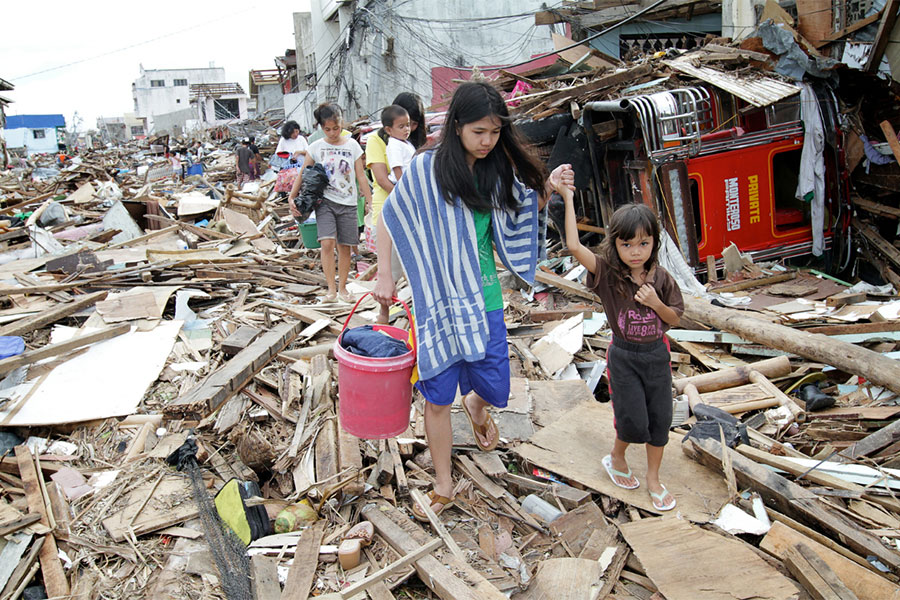
Caritas Australia and its emergency response partners will deliver more than 4,000 temporary shelters to families in the poorest villages of Ormoc in the Philippines, where up to 90 per cent of homes were decimated by Typhoon Haiyan.
Caritas Australia International programs manager Jamie Davies is in the Philippines and recently drove from Tacloban to Ormoc, a city of 190,000 on the western side of the island of Leyte.
“Our team has located the poorest barangays (villages) along the coast of Ormoc who have been left with absolutely nothing. Their need for shelter and basic essentials is urgent,” Ms Davies said.
“Tarpaulins, hygiene kits and other household items are coming by boat from Cebu City and will be stored in the Catholic school gymnasium in Ormoc for distribution to more than 4,000 families.”
Along with the tarps, affected families will receive shelter tools to construct sturdy shelter using materials salvaged from the storm’s wreckage.
Tens of thousands more tarps are en route from Pakistan and will be distributed in Ormoc, Palo in Leyte, and Basey in Samar.
In Palo, 15km south of the Province capital city of badly affected Tacloban, Caritas has set up an office in a Catholic cathedral building where shelter, water, hygiene and cooking kits can be distributed. It is also serving as a refuge for homeless families.
The Archbishop of Palo, John Du, said, “When you stand on the hill at my place in Palo, you look down and what you see is like a valley of death, as if a bomb has been dropped. Almost everything is destroyed. In spite of that we are still hopeful, we will rise from this ordeal, because of the support of our neighbouring dioceses, provinces and countries.”
Ms Davies, who is in the Philippines to attend a planning and logistics coordination meeting of Caritas International network in Cebu, said disasters of this magnitude require significant coordination by aid agencies.
“It is absolutely paramount that local Church and international Caritas partners collaborate to streamline our response; ensure its efficacy and, most importantly, reach those most affected by the typhoon,” she said.
The Caritas network, the second largest humanitarian network in the world, is coordinating with the Philippine government, the United Nations and other humanitarian groups, focusing its emergency response on shelter and hygiene and household kits.
“We have worked through, and with, the Catholic Church in the Philippines for decades,” Ms Davies said.
“Our presence, partnerships, solidarity and coordination help us access the most affected people through diocese staff.
“Caritas has a commitment to build back better and to help these vulnerable communities prepare for future disasters and minimise the risks. We will stand in solidarity with the Filipino community before, during and after the headlines.”
Archbishop Du said the humanitarian response demonstrates the power of the Church’s locally mobilised and led response, which is reinforced with support from international Church and Caritas agencies.